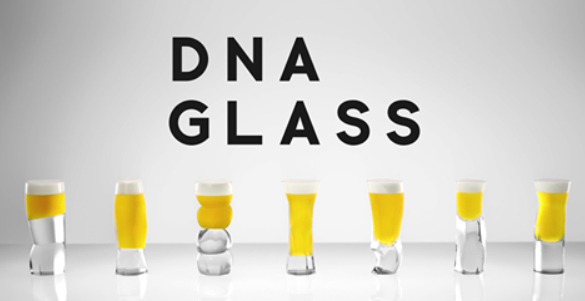Every living being on the planet comes with its own genetic code all neatly tucked away in its DNA. It’s a fascinating and unique piece of information, but it is not really useful in daily life. I mean, of course, DNA evidence comes handy in paternity disputes and similar crimes, when trying to find a match for a lung transplant, or simply to make sure that the arm that has just been fished out of the sewers is not the one missing from your body.
But other than that, human DNA has not been really commercialised on a large scale, an interesting oversight in today’s economy. But never fret, the Japanese – ever eager to create the latest novelty – are trying to fill that gaping hole. Recently I became aware of two different commercial uses of one’s DNA that I will present below.
DNA Hanko
A hanko is a seal that is used in Japan instead of a signature whenever one makes an important legal contract; buying houses, opening companies, or getting married for example. They are usually exquisitely carved in wood or even stone and show the kanji of the owner’s name, often in a design that is based on ancient writings of those kanji that are undecipherable today even for educated Japanese.
The company Hankoya, the largest producer of hanko in Japan, has come up with a way of encoding one’s DNA into a hanko. Obviously not into the kanji themselves, but a hancode as they call it uses a sample of the owner’s DNA to create a unique background for the seal, on which a rather standard rendition of the name kanji is placed. The seal itself is made from titanium and resembles a double helix, and it looks something like this:
 Of course, all this glory comes at a rather hefty price: First of all, one personal DNA seal takes months to make; when you order one, you receive a DNA sampling kit which you use on yourself and then return to the company. There, your DNA will be extracted and an algorithm will produce from it the background of your seal. Second, the cost of one hancode is 75.000 YEN at the moment, not too shabby, although I have to say that I find the idea with the double helix quite fascinating!
Of course, all this glory comes at a rather hefty price: First of all, one personal DNA seal takes months to make; when you order one, you receive a DNA sampling kit which you use on yourself and then return to the company. There, your DNA will be extracted and an algorithm will produce from it the background of your seal. Second, the cost of one hancode is 75.000 YEN at the moment, not too shabby, although I have to say that I find the idea with the double helix quite fascinating!
The main drawback of the hanko in general has not been solved though: That it can be stolen and used by anyone. Even though the owner’s DNA is encoded in it, there is no way of verifying whether the person who is using it to sell away his soul is the owner of both the hanko and the matching DNA. But who knows what the Japanese will come up with next…
DNA Glass
A much less serious application for DNA comes from beer and whiskey producer Suntory: The DNA Glass for beer. They say that in one person’s DNA they can identify five traits that are then translated into the size and shape of a beer glass:
Alcohol tolerance is encoded as capacity,
sensitivity to hops bitterness as rim thickness,
sensitivity to malt aroma as top diameter,
stimulation preference as sharpness, and
sociability as complexity of the glass.
The overall result is a glass from the 3D printer looking like this:
 Somehow this sounds like fun and I wonder if they could find out that I don’t like beer very much. I could not find a link to purchase such a glass, but maybe there will be one later. Here is a link to a design rules I have given above: http://en.dna.glass/howtocreate/ The main page starts with a very noisy video, so go there at your own peril: http://en.dna.glass/
Somehow this sounds like fun and I wonder if they could find out that I don’t like beer very much. I could not find a link to purchase such a glass, but maybe there will be one later. Here is a link to a design rules I have given above: http://en.dna.glass/howtocreate/ The main page starts with a very noisy video, so go there at your own peril: http://en.dna.glass/
